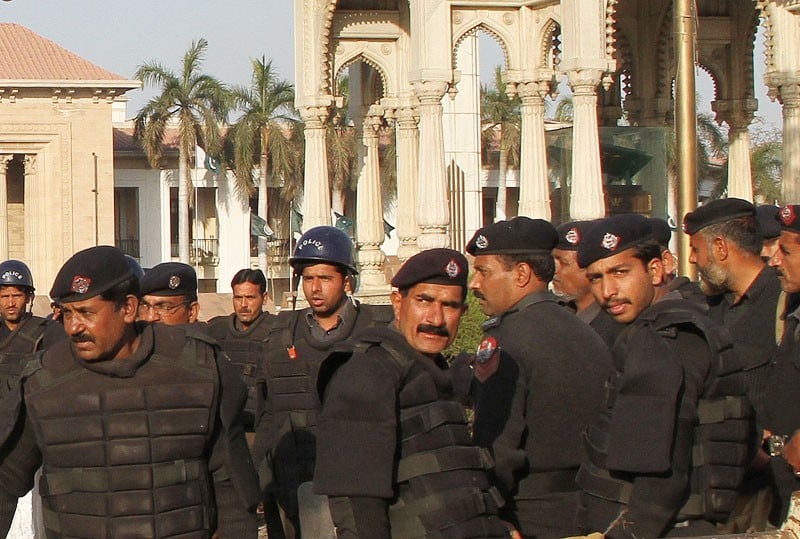
Unless governments make police fully independent and keep it transparent and accountable, police structure will continue to grow weak

The police in Pakistan is criticised for inefficiency, bad public-dealing, accusations of corruption and political manipulation. Amid this public criticism on police and its performance, lack of autonomy and absence of a good legal cover for this law enforcement agency in Pakistan is a top reason for its tarnished image and falling structure. That leaves the police at the mercy of the ruling political and administrative elite that controls the strings of this force, ideally meant to maintain law and order.
Since 1947, there have been a few efforts to improve policing and bring reforms in the police structure. The most-discussed attempt in Pervez Musharraf’s regime -- Police Order of 2002 -- was made toothless in the same regime and was later nullified by the next political regime.
According to some reports, there are 207 policemen on 100,000 people in Pakistan, a country that according to estimates, has nearly 200 million population now. Pakistan has one policeman for round every 384 citizens, which is less than the global average ratio of one for 300 at least. The total number of police force in four provinces is around 350,000.
Many serving and retired police officers believe the police lacks operational capacity and autonomy to work independently and that is why it fails to deliver the desired results. There is also absence of political will and laws that make police an ideal force.
Read also: The missing accountability
A recent study by Pakistan Institute of Legislative Development and Democracy (PILDAT) sums up that there cannot be improvement in police unless the police leadership manages to achieve, at the very least, "security of tenure to police key appointment holders; de-politicisation of police; adequate provision for strategic capacity building of police; substantial change in the work ecology of police, especially for lower ranks; adequate police budget; transformation of police from a public-frightening force to a public-friendly service organisation."
The PIDTAT study believes these steps can help police structure to become politically neutral, non-authoritarian, accountable and approachable by the community, proficiently well-organised, and, last but not least, an effective instrument of the Rule of Law. The report maintains political will and strong-minded police leadership is crucial to complete this journey of reforms.
"We need amendments in Criminal Procedure and Pakistan Penal Codes, Evidence Act 1984 and Anti Terrorism Act 1997, bring significant increase in federal and provincial police budget; reducing disconnect of police with other actors of Criminal Justice System (CJS) like judiciary, lawyers, prosecutors, and prison service; improve in training through specialised training schools; strategic interventions in the police station, such as security of tenure; making internal disciplinary proceedings fair and consistent," writes Muhammad Ali Nekokara, former police officer in his recent research paper, "Policy Recommendations for Reforms in Police".
Nekokara was dismissed from service by the current government of Pakistan Muslim League Nawaz (PML-N) after an alleged manipulated procedure. He had argued against using brutal force against marchers last year during a sit-in against alleged electoral rigging. Similarly, a former Inspector General of Islamabad, Aftab Cheema, was removed from service in the same regime for not acting against the political opponents of the ruling PML-N.
According to media reports, almost 60 per cent of the operational force of police is assigned protocol and security duties of Very Important Persons (VIPs).
"We need two main things for better structure and reforms, a) bring a proper and strong police law to ensure professionally efficient and autonomous police department like in all developed and democratic countries; and, b) give proper financial, operational and administrative autonomy to this force," says Shaukat Javed, former Punjab police chief.
"The law calls for setting up citizen liaison committees, police complaint authority, and public safety commission for bringing police reforms but political regimes hardly pay attention to these organisations and their working," he adds.
He says that, at present, there are some efforts to make police structure better in Khyber Paktunkhwa, for instance, but that is also through an ordinance which needs to be enacted as law. "We need to improve training of police, enhance forensic labs and facilities for better investigations."